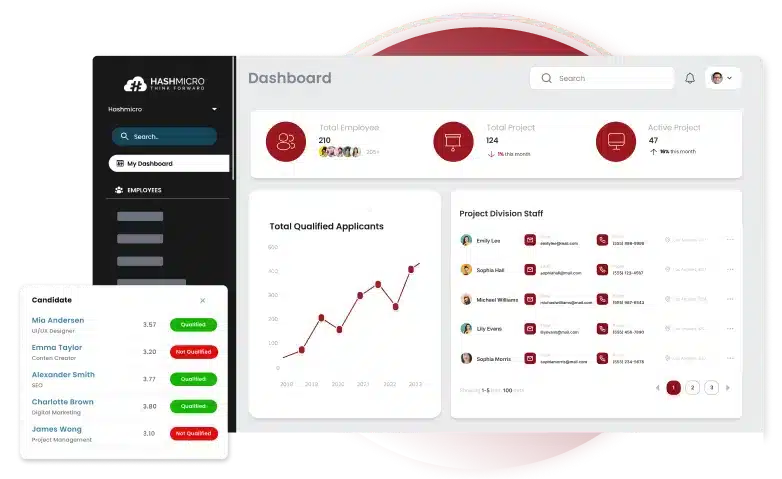When hiring new employees, it’s common to offer a benefits package that includes vacation, insurance, and salary details. However, salary and bonuses may vary depending on when the employee starts during a pay period or fiscal year. This approach is often referred to as prorated salary. Employers frequently use prorated compensation for various reasons, and understanding how this is calculated ensures clarity for both parties, helping to avoid confusion.
In this article, we’ll cover what prorated salary is, when it applies, and how you calculate with your new hires in Malaysia.
Key Takeaways
|
Table of Content
Content Lists

What is Prorated Salary?
A prorated salary, or pro-rata, refers to the adjusted pay given to an employee who hasn’t worked the full pay period. Instead of receiving the full salary, the employee gets a portion based on the actual time worked. The prorated salary meaning involves dividing the full salary by the total number of workdays in the pay period and multiplying that by the number of days the employee actually works. This method ensures the employee is paid fairly for the time worked.
For example, if someone starts on the 21st and the payday is the 31st, they will only be paid for the 10 days worked. This ensures fair pay and compliance, especially when the employee’s start or end date doesn’t match the regular pay period.
When Should a Company Apply Prorated Salary?
Prorated salary applies in several situations. Here are some common examples:
- New Hire Starting Mid-Pay Period: When a new employee begins after the payroll period starts, their pay is prorated based on the days or hours worked.
- Employee Leaves Mid-Pay Period: If an employee resigns or is terminated during a pay period, their salary is prorated to cover only the days worked.
- Mid-Cycle Salary Increase: If an employee gets a raise during a pay period, their pay is prorated to reflect both their old and new salary.
- Part-Time or Reduced Hours: Employees working part-time or reduced hours are paid based on their full-time equivalent hours, with their salary prorated accordingly.
- Unpaid Leave of Absence or Unpaid Time Off: When an employee takes unpaid leave, their salary is prorated for the days worked before leaving.
Prorated salaries ensure fair payment and help companies comply with payroll policies and labor laws in Malaysia. Clear communication about these adjustments is crucial to avoid misunderstandings.
Legal Considerations of Prorated Salary

When dealing with prorated salary, there are certain legal aspects to consider in Malaysia:
- Minimum Wage Compliance: The salary paid, including prorated pay, must comply with the minimum wage laws set by the Malaysian government. Employers cannot pay below the minimum wage for the prorated hours worked.
- Overtime Pay: Employees are entitled to overtime compensation for hours worked beyond the standard workday. If an employee works overtime during a prorated period, they must be paid accordingly, including their prorated salary, based on the applicable overtime pay rates.
- Pay Equality and Non-Discrimination: Employers must ensure that prorated salaries are applied consistently and equitably, adhering to the principles of equal pay for equal work, regardless of gender, age, or other protected characteristics.
- Employment Contracts and Agreements: Employment contracts or collective agreements may contain provisions on prorated salary calculations. Employers are obligated to follow these terms, ensuring the calculations align with what’s agreed upon.
Employers must comply with these provisions to avoid labor disputes or penalties. Many companies use payroll software Malaysia to automate salary calculations and reduce errors.
How to Calculate Prorated Salary
To calculate prorated pay, you need to determine the portion of the full salary that corresponds to the time worked by the employee. Here’s a step-by-step guide:
- Identify the Employee’s Monthly Salary: Start by determining the full monthly salary the employee would earn if they worked the entire month.
- Set the Reference Period: Define the specific time frame for the prorated pay calculation, which is usually a month, a bi-weekly period, or any other defined time period.
- Calculate the Proportion of Time Worked: Calculate the employee’s actual work time in the reference period by dividing the number of days worked by the total number of workdays in the month.
- Calculate the Prorated Pay: Multiply the proportion of time worked by the full monthly salary. This gives the employee prorated pay for that period.
Formula: Prorated Pay = (Proportion of Time Worked) x (Full Monthly Salary)
For example, if an employee starts a job on the 15th of the month and their full monthly salary is RM4,000, and the month has 20 workdays, the employee works 10 days. Their prorated salary would be RM2,000 (10/20 * RM4,000).
It’s important to note that prorated pay calculations can differ based on company policies or specific agreements. Be sure to check with HR or follow the company’s guidelines to ensure accurate calculations.
More Examples of Prorated Salary Calculation

- Calendar Days Proration:
In Malaysia, the calendar days proration method calculates salary based on the total number of days in the month, including weekends and public holidays. For example, if an employee’s monthly salary is RM3,100 and they work 15 out of 30 days in a month, the calculation would be:
(RM 3,100×15)÷30 = RM 1,550(RM3,100×15)÷30=RM1,550. This ensures fair compensation for the days worked. - Working Days Proration:
The working days proration method adjusts salary according to the number of actual working days in the month, excluding weekends but including public holidays. For instance, if an employee’s monthly salary is RM3,100 and they work 10 out of 22 working days, the calculation would be:
(RM 3,100×10)÷22 = RM 1,409(RM3,100×10)÷22=RM1,409. This method focuses on the days employees are expected to work. - Regular Days Proration:
Regular days proration uses a fixed 26-day calculation to determine salary, regardless of weekends and public holidays. For example, if an employee’s monthly salary is RM3,100 and they work 13 days, the calculation would be:
(RM 3,100×13)÷26 = RM 1,550 (RM3,100×13)÷26=RM1,550. This standardized approach simplifies payroll calculations.
How to Communicate Prorated Salary Policy
Clear communication of prorated salary policies is crucial to avoid confusion among employees. Here are some best practices for HR managers:
- Explain Policies During Onboarding: During onboarding, explain key terms such as “prorated pay,” how it’s calculated, and when it applies. Setting these expectations from the start helps employees understand how their pay will be affected.
- Provide Simple, Easy-to-Understand Examples: Use clear, easy-to-follow examples to show how prorated salary works, especially when employees start or leave during a pay period. Giving these examples helps employees better understand how their pay will be calculated.
- Include the Policy in the Employee Handbook: Ensure the policy is documented in the employee handbook so employees can easily refer to it when needed. This makes it easier for employees to access and understand the policy anytime.
By following these practices, companies can ensure transparency and understanding regarding prorated compensation, fostering trust and clarity in the workplace.
Automate Prorated Salary Calculations with HashMicro Payroll Software

HashMicro Payroll Software is the ultimate solution for companies looking for seamless, error-free payroll management. Its fully customizable workflows automatically calculate salaries based on employee schedules, promotions, and start or end dates. This ensures that pro-rated salary calculations are accurate and compliant with Malaysian labor laws.
Moreover, HashMicro takes it to the next level by automatically adjusting for mid-cycle hires, departures, and part-time shifts. The system also auto-calculates taxes and mandatory contributions, ensuring compliance and reducing administrative burdens.
Beyond just calculations, HashMicro provides customizable payslips tailored to your company’s needs. Also giving employees a clear breakdown of their pay, deductions, and benefits. With real-time updates and integration, you can always ensure that your payroll data is up-to-date and accurate.
Key Features:
- Payslip Management for Daily and Hourly Workers: Customize payslips for employees with daily or hourly wages, ensuring clarity and transparency in take home pay.
- Overtime Calculation Linked to Payroll: Automatically calculates and includes overtime pay, ensuring employees are compensated fairly for extra hours worked.
- Professional Templates for Contracts & Payslips: Use pre-built templates for consistent, professional documents that align with company branding.
- Localized Payroll with Tax Compliance: Ensures accurate tax deductions in line with Malaysian regulations, including EPF, SOCSO, and income tax.
- Approval Delegation with Auto Follow-Up: Delegate payroll approvals and receive automatic follow-up notifications to streamline processes.
- Employee Self-Service Mobile App: Employees can access payroll details, request leave, and update information via a mobile app, enhancing convenience and engagement.
- Comprehensive Reports on Leaves, Payroll, Expenses, Overtime, and Attendance: Generates detailed reports for better decision-making and compliance.
By leveraging HashMicro Payroll Software, businesses in Malaysia can simplify payroll management, and ensure compliance. Ultimately enhancing employee satisfaction and loyalty.
Conclusion
A prorated salary ensures that employees are compensated fairly for the actual time they’ve worked during a pay period. It applies when someone starts or leaves mid-cycle, works part-time, or experiences a salary change. Understanding how to calculate pro rated salary is crucial for maintaining compliance and transparency in payroll processes.
HashMicro Payroll Software removes the complexity from prorated salary calculations, ensuring accuracy and compliance with Malaysian labor laws. By automating these calculations, HR software Malaysia helps businesses avoid errors and streamline payroll management. With features like customizable payslips, tax compliance, and real-time updates, HashMicro provides a comprehensive solution for managing payroll efficiently.
Ready to simplify your payroll processes and enhance employee satisfaction? Try a free demo of HashMicro Payroll Software today and see how it can transform your payroll management.
FAQ about prorated salary
-
What is the meaning of prorated salary?
Prorated salary refers to the adjusted pay given to an employee who hasn’t worked the full pay period. It ensures they are compensated fairly for the actual days worked, rather than receiving a full month’s salary.
-
How to prorate salary in Malaysia?
In Malaysia, salary can be prorated using three methods: by calendar days, working days, or a fixed 26-day calculation. Employers choose the method that best fits their needs, ensuring fair compensation for the days worked.
-
What does it mean to pay prorated?
Paying prorated means adjusting an employee’s salary to reflect the actual time worked during a pay period. This approach is used when an employee starts or leaves mid-cycle, ensuring they receive fair compensation.




































